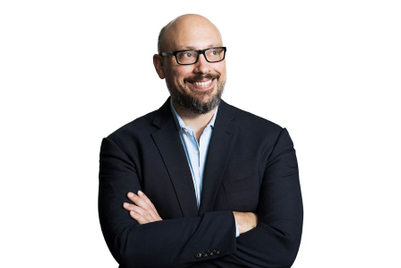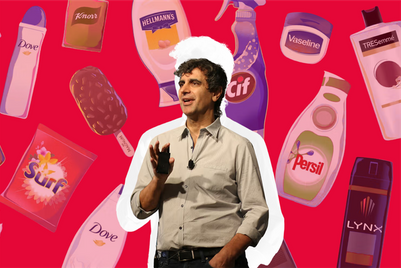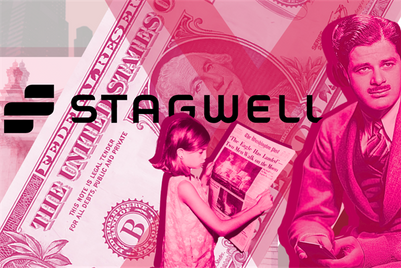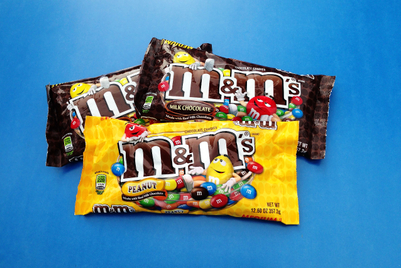
If you Google "Wrigley CMO," you will scroll through many pages of results before finding any mention of Orla Mitchell. Which is weird, because Mitchell has been CMO of Wrigley—overseeing blockbuster brands such as Extra, Orbit, Doublemint, Skittles and Starburst—for more than two years now.
"I am known to be relatively low profile," she says. "I’ve been focusing on the change here." (Also adding to the confusion: Wrigley announced in 2013 that it was eliminating its North American CMO position—news that many took to mean the company would have no CMO at all. Not a huge stretch considering Wrigley was a US company until 2008, when Mars, Inc. acquired it for $23 billion.)
The "change," of course, is the tectonic shift in the global gum business, which Wrigley dominates with brands like Doublemint and Extra. Chewing gum sales have been declining in the US for years, dropping 15 percent between 2009 and 2014 before "showing new life" in 2015, according to consultancy Euromonitor. Blame competition from stronger mints that leave no waste and a proliferation of flavors that alienated consumers.
Meanwhile, gum is starting to catch on in Brazil and China, where sales are expected to increase 6 percent every year for the next five years.
Mitchell, an Irish native now living in Chicago, is no stranger to the confections business. She previously served as European marketing director for Mars’ confectionery portfolio, overseeing brands like Skittles and Starburst (now housed under Wrigley). Before joining Mars in 2001, she spent seven years at Nestle.
Like her boss, Mars CMO Bruce McColl, Mitchell is a true believer in long-term agency relationships and evidence-based marketing. And these days, she is far more interested in telling good stories with Wrigley’s ads than trying to persuade consumers with product benefits.
The allure of American baseball continues to elude her.
Gum sales have been falling in the US for years. What was the industry doing wrong?
I think consumers stopped noticing us because we became too rational and quite product-centric. People buy gum for various reasons. They buy it for freshening, they buy it for fun. We had kind of lost a lot of that emphasis and had become very serious. I think we'd lost our way creatively. I'm really trying to shift the focus back now to brand centricity.
The other big factor was we had lost focus in our innovation. We'd become very "spray and pray" – throw a flavor out there and see where it goes. But that really cluttered the category, and was eating up valuable space at point of purchase. We took our attention away from the core flavors and the core execution that people love and remembered. So people stopped noticing us, and they forgot about gum.
What would you say was the best innovation in the category in the last 10 years?
Making the blockbuster flavors like peppermint and spearmint available in bottles or a larger format so that people can have gum with them. Because when people have gum with them or near them, people consume gum. When people don't have gum, they forget about gum. So having the gum bottles available in offices or that fit into a cup in a car has been hugely transformational, particularly for the European and the Chinese business.
Similarly, upsizing packs in the US, so you can have more sticks of gum on you, has been quite successful. So rather than new flavors, it's about taking your best flavors and making sure that you're available in all channels for all occasions.
Geographically, where do you expect the growth to come from in the next year or two?
We have a huge business in China, but like a lot of other multinationals at the moment, the shifting dynamic in China has hugely slowed the pace of growth. But we're also opening up new frontiers. We have a vibrant and growing business in East Africa. We're building a huge new plant in Nairobi at the moment. We have a nicely growing business in West Africa, based out of Nigeria. We have some very nice businesses in the Philippines, in Vietnam. We're not as strong as we would like to be in Brazil.
You oversee some brands with a lot of great advertising campaigns in their history. Any personal favorites?
I love what we've done with Extra here in the US over the last couple of years. I'm very proud to have been part of the team on the recent Sarah and Juan ads. That to me is a great example of bringing gum back from being functional to actually leveraging a universal human truth around a situation where gum plays a role.
The new "Life happens in 5" campaign as well, because we brought the brand out of the laboratory, but still have kept it very trendy. Again, it’s around that universal moment of truth when you choose to do something or not. We're showing very good signs globally of this being quite successful for us.
I tend to be most proud of those campaigns that truly are based on universal truths and patterns for behavior that we can leverage, enjoy, and build creative off of. I get absolutely less energy from talking about pH curves and functionality in product, because in my view, persuasion doesn't sell.
How do you define good work?
We have a proprietary internal system where we measure advertising effectiveness linked to business results. The reality is that advertising is there to sell and build a sustainable business over the longer term. So I am very focused on our creative being efficient.
Of course, it's always great to see the earned media you get out of great campaigns, like our recent Sarah and Juan journey. And it's always very nice to win creative excellence awards. But winning efficiency awards gives me a lot of pride as well.
What would you change about the agency business if you could?
For me, the question is, "What do both parties, agencies and clients, need to change about each other?" It's not just about the agency changing. The one thing I really hold very dear is stability, mutuality, collaboration and creating the conditions for creative excellence. Dealing with agencies on a very transactional basis, or vice versa, where it all becomes about cost and remuneration — that to me is the single biggest destroyer of creative excellence. For me, it's how both parties create the conditions to win, or the environment for creative excellence that is driven through true strategic partnership, mutuality of interest - and that means down to how each is rewarded.
I'm not a fan of endless pitches and changing strategic creative partners very often, because I think it takes time to know a business, to know a brand, and to actually have stability of tenure to create winning work.
Are you a Cubs fan?
The whole concept of baseball is relatively new to me. I have been to a couple of games thankfully, through BBDO giving me a chance to sit in Mr. Wrigley's old seats. So yes, of all the US sports, it's probably the one that I've enjoyed the most so far, but if you really pin me to the wall, I'm a rugby fan.


.jpg&h=334&w=500&q=100&v=20250320&c=1)


.jpg&h=334&w=500&q=100&v=20250320&c=1)
.jpg&h=334&w=500&q=100&v=20250320&c=1)
.jpg&h=334&w=500&q=100&v=20250320&c=1)

.jpg&h=334&w=500&q=100&v=20250320&c=1)









